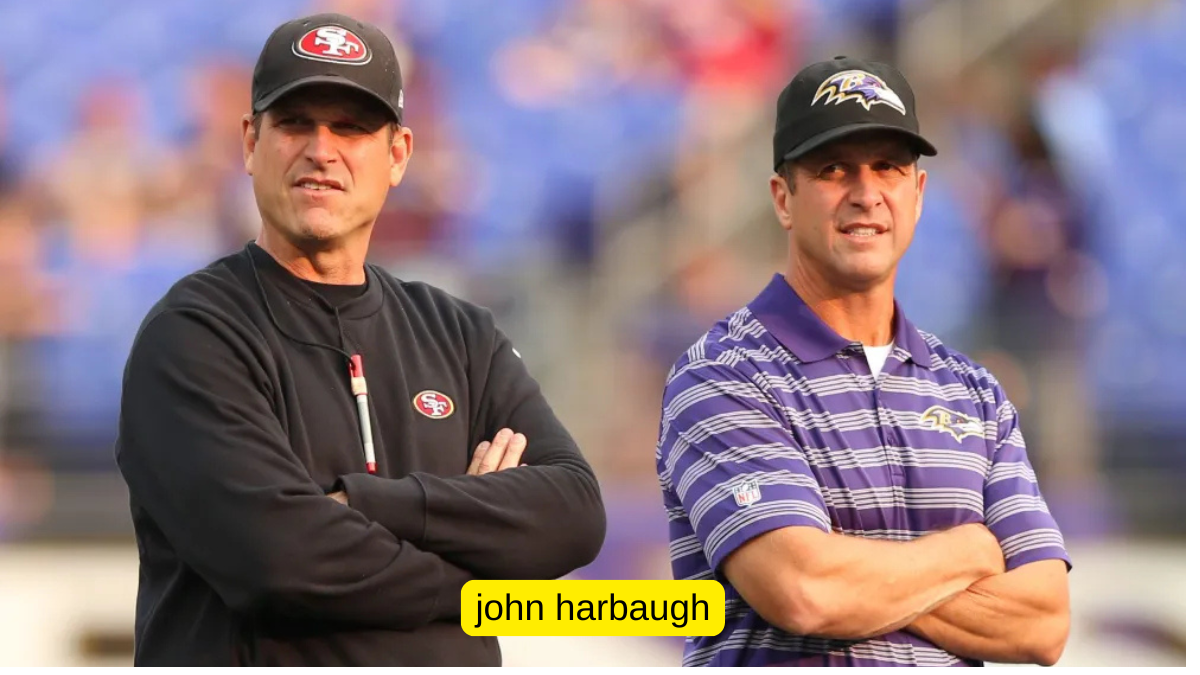John Harbaugh, the head coach of the Baltimore Ravens, is one of the most accomplished and respected figures in the National Football League (NFL). Renowned for his leadership, strategic brilliance, and consistent success, Harbaugh’s coaching career has been marked by numerous milestones and accolades. This article delves deep into his journey, coaching philosophy, and impact on the Ravens and the NFL.
Early Life and Athletic Beginnings
John Harbaugh was born on September 23, 1962, in Toledo, Ohio, into a family deeply rooted in sports. His father, Jack Harbaugh, was a football coach, which inspired John and his younger brother, Jim Harbaugh, to pursue careers in the sport.
- Education: Harbaugh attended Pioneer High School in Ann Arbor, Michigan, and later enrolled at Miami University in Oxford, Ohio.
- Athletic Career: At Miami, he played as a defensive back, gaining a deep understanding of the game from a player’s perspective, which later influenced his coaching style.
The Path to the NFL: Coaching Beginnings
John Harbaugh’s coaching journey began in the college ranks, where he honed his skills over a decade:
- Graduate Assistant: Harbaugh started as a graduate assistant at Western Michigan University, working closely with the defensive units.
- Special Teams Expertise: His talent for coaching special teams emerged during his stints at Pitt, Morehead State, and Cincinnati, where he developed innovative strategies.
- University of Indiana: As a special teams and defensive backs coach, Harbaugh built a reputation as a meticulous and innovative coach.
This dedication eventually led to his entry into the NFL.
Rise in the NFL: Philadelphia Eagles Era
In 1998, John Harbaugh joined the Philadelphia Eagles under head coach Andy Reid. Over nine seasons with the Eagles, Harbaugh transformed the team’s special teams unit into one of the league’s best.
- Special Teams Coordinator: Harbaugh’s special teams consistently ranked among the top in the NFL, thanks to his attention to detail and creative play designs.
- Defensive Backs Coach: In 2007, Harbaugh shifted to coaching the defensive backs, further showcasing his versatility and deep football knowledge.
Baltimore Ravens: A New Chapter
Becoming the Head Coach
In 2008, Harbaugh was appointed as the head coach of the Baltimore Ravens, making him one of the few coaches to transition directly from a non-coordinator NFL role to a head coaching position. His selection was a testament to his leadership skills and football acumen.
Immediate Impact
Harbaugh made an instant impact, leading the Ravens to the AFC Championship Game in his first season. His ability to motivate players, foster team unity, and adapt strategies to exploit opponents’ weaknesses became evident from the start.
Key Achievements with the Ravens
Super Bowl XLVII Victory
The crowning achievement of John Harbaugh’s career came in 2013, when he led the Ravens to victory in Super Bowl XLVII. In a historic matchup against his brother, Jim Harbaugh, who coached the San Francisco 49ers, the Ravens secured a 34-31 win. This game, often referred to as the “Harbaugh Bowl,” showcased John’s strategic brilliance and ability to thrive under pressure.
Consistent Playoff Success
Under Harbaugh’s leadership, the Ravens have been perennial playoff contenders. Notable highlights include:
- 2011 AFC Championship Game: Despite a narrow loss to the New England Patriots, Harbaugh’s Ravens displayed resilience and tactical excellence.
- 2019 Regular Season: The Ravens achieved a franchise-best 14-2 record, led by Harbaugh’s innovative use of quarterback Lamar Jackson’s unique talents.
Innovative Coaching
Harbaugh is celebrated for embracing modern football trends, such as:
- Analytics-Driven Decisions: Frequently opting for fourth-down conversions and aggressive play-calling.
- Maximizing Player Strengths: Building offenses and defenses tailored to the unique skills of stars like Ray Lewis, Ed Reed, and Lamar Jackson.
Coaching Philosophy and Leadership Style
John Harbaugh’s success stems from his unique coaching philosophy, which blends traditional football values with modern innovation:
Team Culture
Harbaugh emphasizes the importance of creating a family-like environment, fostering trust and mutual respect among players and staff.
Player Development
Harbaugh is known for nurturing talent, both on and off the field. Many players credit him for their personal and professional growth, as he often mentors athletes beyond just the game.
Adaptability
One of Harbaugh’s greatest strengths is his adaptability. Whether managing transitions between veteran and younger rosters or adjusting game plans mid-season, his flexibility ensures sustained competitiveness.
Challenges and Resilience
Like any coach, Harbaugh has faced challenges, including injuries to key players and roster overhauls. However, his ability to navigate adversity with composure and strategic thinking has solidified his reputation as one of the NFL’s elite coaches.
Legacy and Future Aspirations
John Harbaugh’s legacy as a head coach is already secured, but his hunger for success remains strong. With a talented roster and a proven system, the Ravens are well-positioned to contend for more championships under his leadership.
Conclusion
John Harbaugh stands as a paragon of coaching excellence, blending tactical brilliance, leadership, and innovation. His journey from college football to becoming one of the most successful NFL head coaches is a testament to his dedication and skill. As the head coach of the Baltimore Ravens, he continues to inspire players, fans, and fellow coaches alike.

